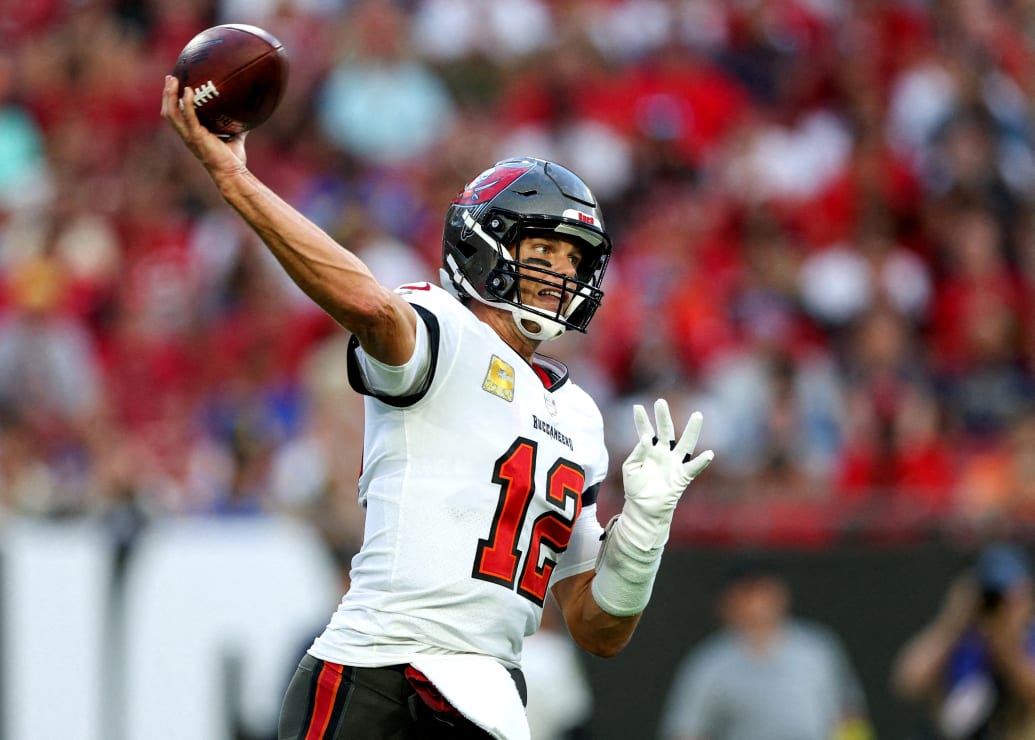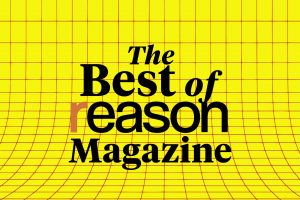The last play of Tom Brady’s career was a bad one. For a guy who had become the GOAT by being obnoxiously perfect, a throw that was inches out of the reach of Tampa Bay wide receiver Julio Jones was an ignoble way to go out. Perhaps the years had finally caught up to Brady or he had already mentally checked out of an NFL season he reportedly gave up his marriage to play in. But a team of academics from two Louisiana universities recently published a paper that points to another culprit: air pollution.
There’s already a substantial body of evidence pointing to air quality affecting performance in solo athletes—one recent study found that even small amounts of air pollution equate to slower times for college track athletes. Researchers have also looked at soccer players, finding that when players are exposed to worse air, they make fewer passes and not only run less, but play with less intensity. But the new peer-reviewed study was the first attempt by scientists to see how air pollution affects pros in big North American sports—baseball and football.
And what the researchers found was consistent with those previous studies: teams and players based in cities with worse air quality made more errors, threw more interceptions and made other costly mistakes, and just generally performed at a lower level.
“Whether you’re looking at a one year snapshot of performance, or over the course of a career, it appears that based on our sample, that does negatively affect performance,” Jeremy Foreman, an associate professor at University of Louisiana at Lafayette and a co-author of the study, told The Daily Beast.
For the study, published in the January edition of the International Journal of Environmental Research and Public Health, the researchers compiled two datasets: one of all the errors committed in Major League Baseball from 1999 to 2020, and another of interceptions thrown and quarterback rating for every NFL quarterback from 2006 to 2021. They then compared those numbers to data from the Environmental Protection Agency’s Air Quality Index, which measures pollutants like carbon monoxide and microscopic amounts of matter and liquid known as particulate matter on a scale from 0 (little to no risk) to 500 (everyone exposed is in danger).
The researchers accounted for some variables—for instance, they worked on the assumption that the more a baseball team spent on salary, the fewer errors a team could be expected to make. Likewise, an NFL quarterback with more years of experience would make fewer mistakes than a rookie and would thus have a higher quarterback rating.
“Whether you’re looking at a one year snapshot of performance, or over the course of a career, it appears that based on our sample, that does negatively affect performance”
— Jeremy Foreman, University of Louisiana at Lafayette
What they found was that the difference in performance due to air quality was small with regards to isolated incidents, but could lead to significant issues over the course of a season. Each one-point rise in the AQI was connected to an additional 0.000993 errors per game. The Arizona Diamondbacks who play in Phoenix, the city with the worst air quality in the MLB, would be expected to commit 10 extra errors over the course of a season.
On the football side, each one point rise in AQI was tied to 0.230 decrease in QB rating, a statistic that incorporates passing attempts, completions, touchdowns, interceptions and total yards to give an overall look at quarterback performance. So a quarterback playing for the Arizona Cardinals, who also suffer from terrible air just west of Phoenix in Glendale, would see a decrease in QBR of 15.4 points (and would also have an interception rate 1.27 per cent higher than if they played in a city where the air quality is the NFL average).
The results also showed that exposure to bad air didn’t just affect athletes in the short term, but could result in an accumulated deterioration in performance over time. For example, the researchers observed that the more time a quarterback spent playing in locations with more pollution over the course of their year, the more of a toll it took on their abilities.
Tom Brady is the best quarterback to have ever played the game—but even he may not have been immune to the negative effects of poor air quality.
Nathan Ray Seebeck-USA TODAY Sports/File Photo
While previous studies have shown that pollutants in the air can affect athletes engaged in cardio-intensive sports like marathon runners, the new research showed that even in sports where the action comes in short bursts, players’ performance suffers. Mistakes in both football and baseball are often due more to faulty judgment than they are physical limitations—and so if air pollution plays a role, it’s because the pollutants don’t just affect bodily systems like the lungs, but can also impair cognitive function, Francis Pope, a professor of atmospheric studies at the University of Birmingham, told The Daily Beast.
“The cognitive side has really started to be understood in the last few years, but the mechanism hasn’t been understood so much,” he said. “But certainly the evidence is piling up, that pollution does appear to have an effect on the cognitive impacts of people, both in the short term and, via increased rates of diseases like Alzheimer’s, the long term.”
The study’s conclusions are largely in line with what was already known about air quality, but the analysis does not take into account that different pollutants affect the human body differently, according to Michael Koehle, a professor of sports medicine at the University of British Columbia.
“They don’t look at the individual pollutants, they just look at overall air pollution,” he told The Daily Beast. “So on a certain day, or in a certain place, it could be really bad ozone and in other places, it could be lots of particles in the air, or oxides of nitrogen or something like that. And they all would have slightly different effects.”It’s hard to say, for instance, exactly why a quarterback like Brady might misjudge a pass.
“Carbon monoxide, which is a pollutant, which is clearly shown to affect cognition, it’s going to act by interfering with the body’s ability to deliver oxygen to the brain,” Koehle added. “Whereas something like oxides of nitrogen, there’s a recent study that just came out looking at functional MRIs, and they did show changes in the functional brain or the interaction of the brain in response to that.”
Despite the paper’s limitations, it’s clear that air pollution cannot be good for people’s health—physically or cognitively, whether during a sports game or any number of other activities.. That doesn’t mean, however, that Foreman is planning to use his new research to get an edge on how to bet on the Super Bowl this Sunday. (For those looking for an advantage in their own wagers, the air quality in Kansas City and Philadelphia is roughly the same).
Instead, Foreman emphasized that the data should offer a chance to fans to reflect on what their city’s environment is costing them—if not to their own health, than in the chance to see their favorite team competing to the actual best of their abilities.
“It doesn’t mean that a high performing quarterback is going to all of a sudden be awful because he’s playing in a certain city. If you’re a quarterback and Andy Reid is your coach, and you’ve got a great offensive line, things are probably going to be okay, regardless of the air quality. And if you’re Patrick Mahomes and very talented, even better,” he said. “But how much better could you be if there was better air?”



